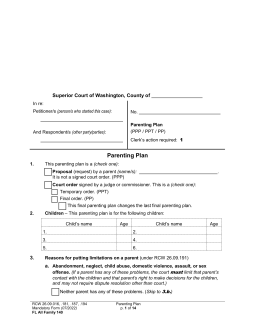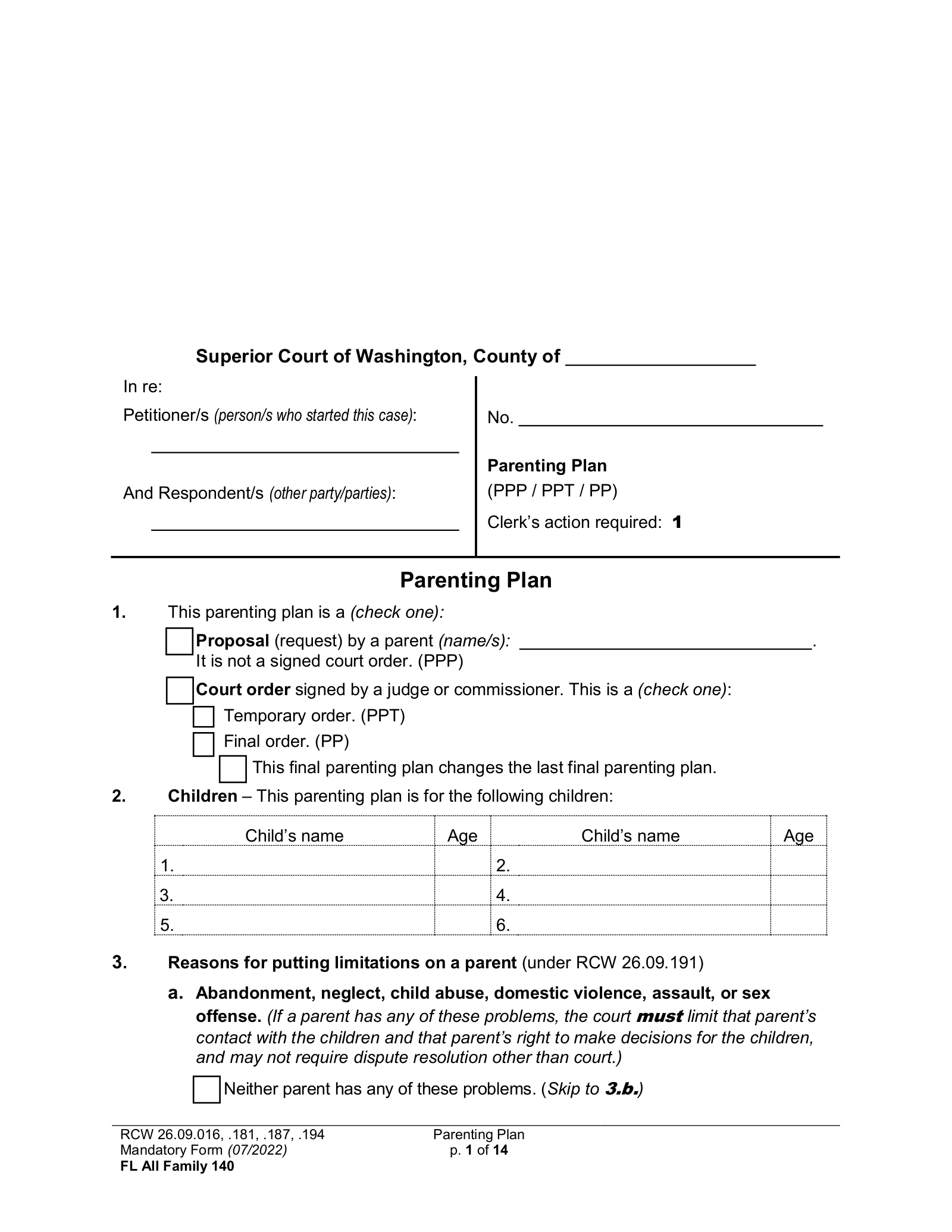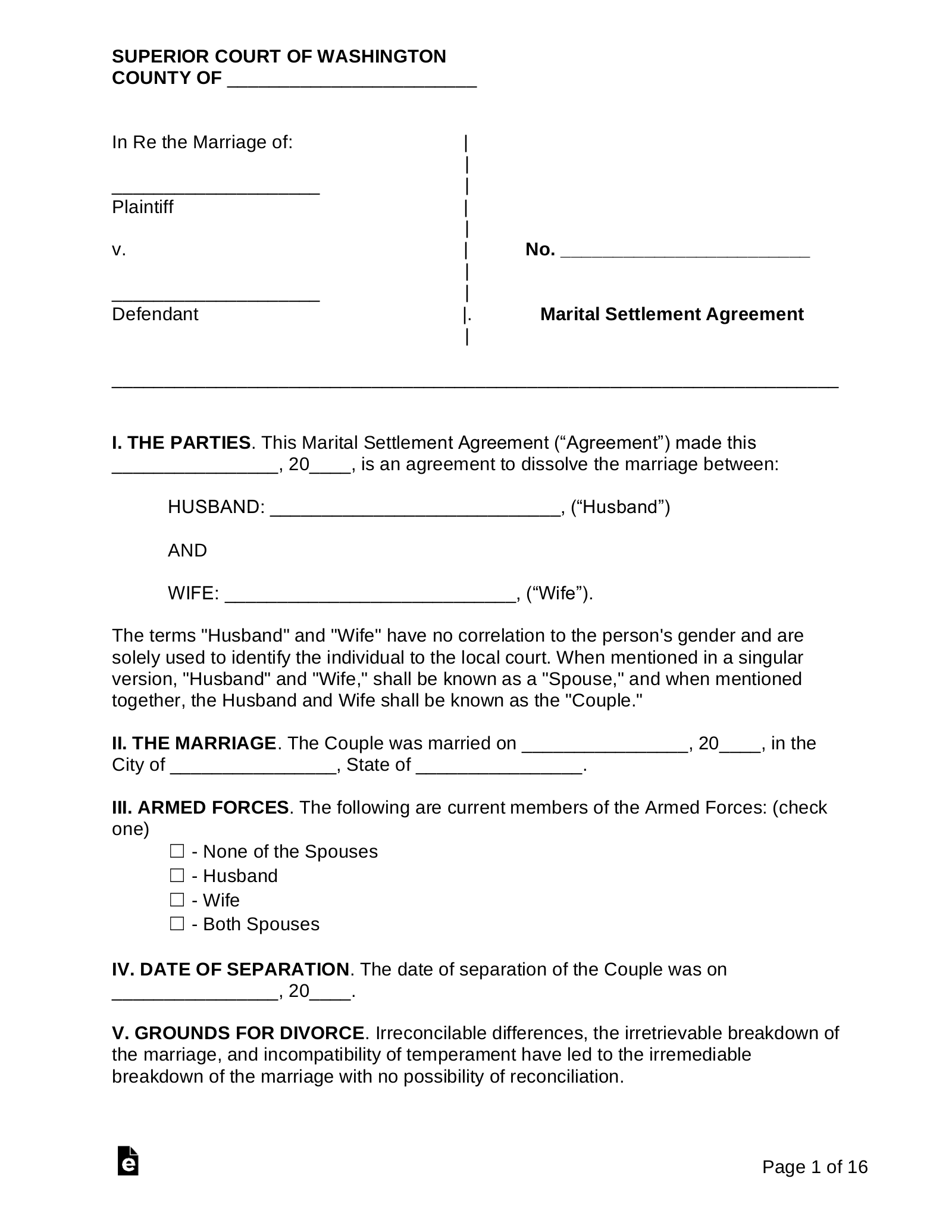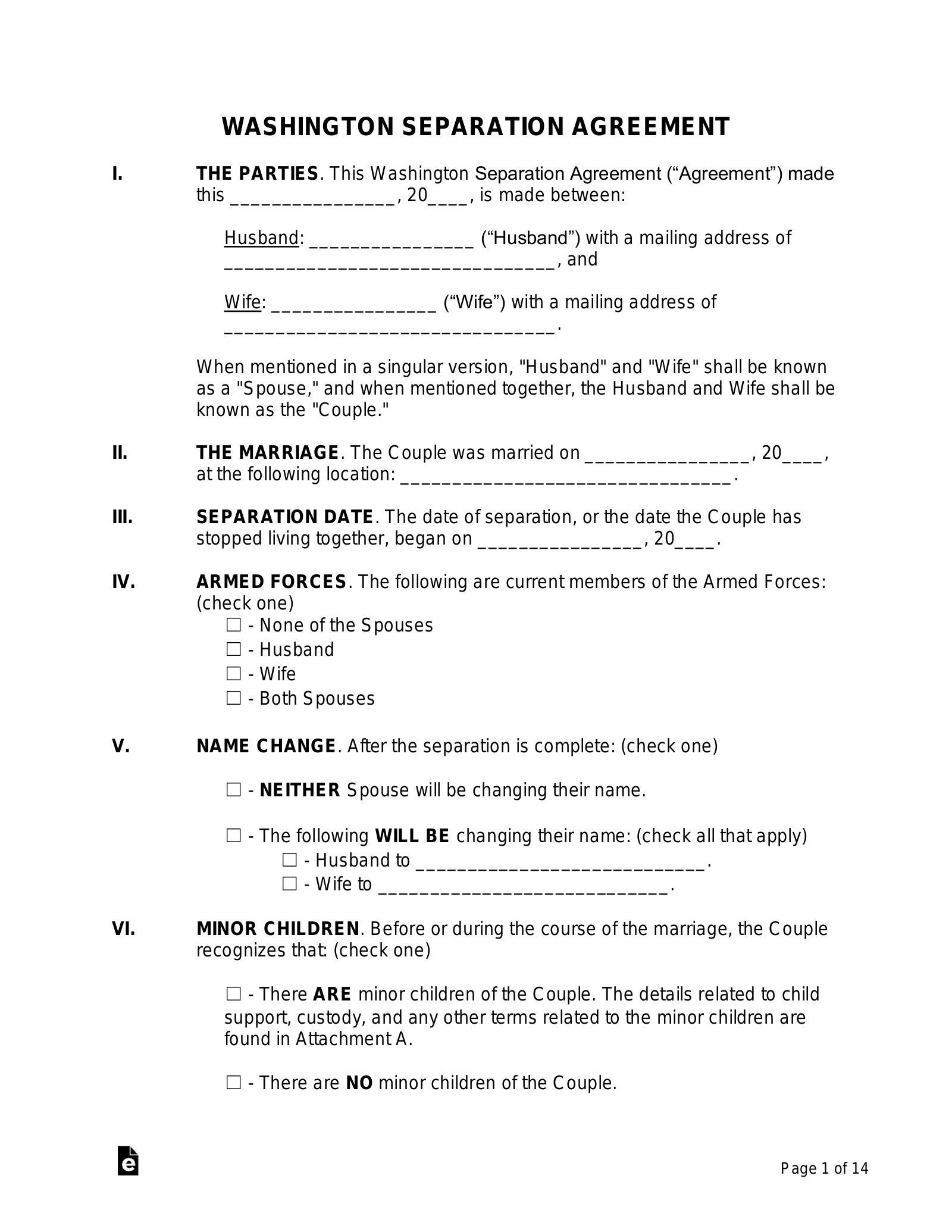Updated September 22, 2023
A Washington custody agreement is a legal document that clarifies the ways in which two separated parents will share time with and responsibility for their child. In making determinations related to custody and co-parenting, Washington courts strive to maintain as much stability for the child as is possible. The guiding principle for all custody hearings and arrangements is the child’s best interest.
Child Custody Factors
-
The child’s relationship with each parent
-
The agreements of the parties, provided they were entered into knowingly and voluntarily
-
Each parent’s past and potential for future performance of parenting functions
-
The emotional needs and developmental level of the child
-
The child’s relationship with siblings and with other significant adults
-
The child’s involvement with a school or environment
-
The child’s preference
-
Each parent’s employment schedule
Table of Contents |
How to File for Custody in Washington
1. Agree on a Parenting Plan
A parenting plan includes the child’s proposed schedule and living arrangements, as well as each parent’s rights and responsibilities related to the child.[1] This plan becomes a court order, so it’s best to put thought, time, and effort into settling on terms that work for both parties and, ultimately, for the child.
For parents who can’t agree on the terms of a parenting plan, the court will assign a mediator. Per state statute, the mediator’s goal is “to reduce acrimony which may exist between the parties and to develop an agreement assuring the child’s close and continuing contact with both parents.”[2] Another option for parents who can’t agree is to seek counseling or arbitration.
If separately filing plans, each party must propose a permanent plan on or before 30 days after filing and service by either party of a notice for trial, or 180 days after commencement of the action. The 180 period may be extended by stipulation of the parties.[3]
2. Calculate Child Support
Use the state’s Child Support Calculator to estimate the amount of child support that may be ordered by the court. In Washington, the combined income of both parents and the number of children eligible for support are used to determine child support obligations.
3. File Forms
If parents are married, then custody determinations will be part of a divorce proceeding. In addition to filing the forms for initiating a divorce, file the following documents:
If parents are unmarried, the filer must file the following forms:
Forms should be filed in the superior court in the county where the child lives. Fees for filing divorce papers amount to $314. Unmarried parents pay $260 to file custody-related paperwork.
4. Serve Respondent
Copies of filed forms must be properly served on the non-filing party, also known as the respondent.[4] The court requires a Proof of Personal Service form attesting that the papers were properly served. The respondent has 20 days in which to file a response. Instructions for filing a response appear on the served forms.
The court clerk will schedule a hearing date and notify both parents.
5. Attend Hearing
Attendance at a hearing is mandatory for both parents. The final order will be entered no sooner than 90 days after the filing and service of custody-related paperwork.
Custody Laws
- Child’s Preference: Considered if the child is “sufficiently mature to express reasoned and independent preferences as to his or her residential schedule.”[5]
- Non-Parental Visitation: § 26.11
- Uniform Child Custody Jurisdiction and Enforcement Act: Chapter 26.27 RCW
- Visitation: § 26.09
Related Forms




